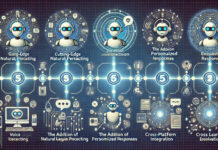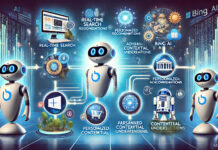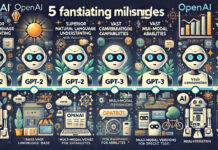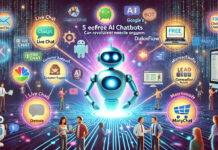Table of Contents
As Artificial Intelligence (AI) continues to make significant strides, its influence across various industries, including software engineering, is becoming increasingly evident. The rapid advancement of AI has led to a growing debate centered around the concept of human vs AI in software development. Many wonder if AI will one day replace human software engineers entirely, given its ability to automate complex tasks, optimize processes, and even write code. However, despite AI’s impressive capabilities, the role of human engineers remains irreplaceable.
The discussion of human vs AI in software development goes beyond mere technical ability; it encompasses the creative, ethical, and problem-solving skills that only humans possess. While AI excels in handling repetitive tasks and analyzing vast amounts of data, it lacks the nuanced understanding and innovative thinking that are crucial in software development. This article delves into seven compelling reasons why the human element in software engineering continues to be indispensable, even as AI evolves. By exploring these reasons, we will highlight the unique strengths and attributes that human engineers bring to the field, ensuring that the technology we develop not only advances but also serves humanity in meaningful and ethical ways.
1. The Rise of AI in Software Engineering
AI is revolutionizing software engineering by automating many tasks that once required significant time and effort. AI-driven tools can now write code, debug programs, and optimize performance with impressive efficiency. These advancements have dramatically reduced project completion times and increased productivity across the board. However, the role of AI in software engineering still has its limitations. While AI can handle repetitive tasks, the complexity and creativity required in software engineering go beyond what AI can achieve. Human engineers bring a level of creativity and problem-solving that AI currently cannot match.

2. Human Creativity and Problem-Solving
One of the most significant advantages human engineers have over AI is creativity. Developing innovative software solutions often requires thinking outside the box, combining multiple perspectives, and envisioning new possibilities. AI excels at processing data and recognizing patterns, but it lacks the creative intuition that drives innovation. For example, designing user interfaces or developing gaming software relies heavily on creativity. Human engineers can imagine novel ways to engage users and solve complex problems that do not have straightforward solutions. This creative aspect of software engineering is something that AI, with its logic-based approach, cannot replicate.
3. Understanding User Needs
Human engineers excel at understanding and empathizing with user needs, which is critical for creating software that meets and exceeds user expectations. Developing user-centric software requires more than technical skills; it involves a deep understanding of human behavior, preferences, and pain points. Human engineers gather feedback, conduct usability tests, and interact with users to gain valuable insights that inform the development process. While AI can analyze vast amounts of user data and suggest improvements, it cannot fully grasp the subtleties and nuances of human experience. Understanding and addressing user needs remains a fundamental aspect of software engineering that only humans can effectively manage.
4. Ethical Considerations
As AI becomes more integrated into software development, ethical considerations are becoming increasingly important. Decisions regarding data privacy, algorithmic bias, and the broader societal impact of technology require human judgment. Software engineers play a crucial role in ensuring that AI-driven solutions are developed and deployed responsibly. For instance, when creating AI algorithms for hiring, human engineers must ensure that these systems do not perpetuate existing biases. They must design systems that promote fairness, transparency, and accountability. Ethical decision-making is a complex process that involves balancing various factors, a task that AI alone cannot handle.
5. Collaboration and Communication
Effective collaboration and communication are essential in software engineering, as projects often involve multiple stakeholders, including developers, designers, project managers, and clients. Human engineers excel in these areas, using their interpersonal skills to work effectively in teams, resolve conflicts, and align project goals. While AI tools can assist in project management and facilitate communication, they cannot replace the human touch required to build strong working relationships and navigate the complexities of team dynamics. The ability to collaborate and communicate effectively is a skill that remains uniquely human and is crucial for the success of software engineering projects.

6. Adaptability and Learning
The technology landscape is constantly evolving, with new programming languages, frameworks, and tools emerging regularly. Human engineers have the ability to learn, adapt, and apply new knowledge to their work. This continuous learning mindset is essential for staying relevant in the fast-paced field of software development. AI can support this process by providing resources and identifying learning opportunities, but the motivation and capacity to learn and grow are inherently human traits. The adaptability and willingness to embrace change are what enable human engineers to innovate and push the boundaries of what is possible in software engineering.
7. Future Directions for AI and Software Engineering
AI will continue to enhance software engineering processes but is unlikely to replace human engineers entirely. The future will see a symbiotic relationship between AI and human engineers, where each complements the other’s strengths.
AI can handle repetitive and data-intensive tasks, allowing human engineers to focus on creative problem-solving, user experience, and ethical considerations. This partnership will lead to more innovative and user-centric software solutions.
Conclusion
In an AI-dominated future, software engineers will remain crucial due to their creativity, understanding of user needs, ethical judgment, collaboration skills, and adaptability. The human element in software engineering ensures technology continues to serve humanity meaningfully and responsibly. As AI evolves, the role of software engineers will also grow, emphasizing the importance of human expertise in shaping the future of technology.
For further insights into the evolving landscape of software engineering and AI, stay tuned to our series on AI technologies and Opinions and Analyses.
FAQ Section
- Will AI replace human software engineers? No, AI will complement human engineers by handling repetitive tasks, allowing engineers to focus on creativity, problem-solving, and ethical decisions.
- What role does creativity play in software engineering? Creativity is crucial for developing innovative solutions, designing user interfaces, and solving complex problems, areas where AI currently lacks capability.
- How does AI contribute to software engineering? AI automates coding, debugging, and optimization tasks, increasing efficiency and reducing project timelines, but human oversight remains essential.
- Why are ethical considerations important in AI-driven software development? Human engineers ensure that AI systems are developed and deployed responsibly, addressing concerns like data privacy, bias, and fairness.
- How will the relationship between AI and software engineers evolve? The future will see AI and human engineers working together, with AI handling data-intensive tasks and humans focusing on creativity and ethics.



